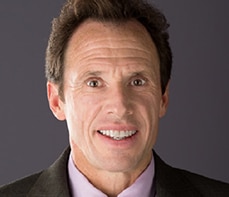Rich Power

Siemens
Solutions Architect in Cloud Services
EDUCATION
University of Michigan, BSE Interdisciplinary Engineering, 1987
Michigan State, MBA, 1990
University of Michigan, MSE Industrial Engineering, 1999
CAREER SUMMARY
My journey has been two-fold. I started my career out in the 1990’s in mechanical automotive engineering, and could recognize potential limitations there, so I returned to the University for a master’s in Industrial Engineering with an emphasis in computer science, and that got me into a career of IT and software development, which I have been very happy with. Once working in IT and software development, the projects become your opportunity to leverage into better, more important projects in the future. So on the one hand, to become the best that you can be, you want to be the best that you can be at the job you are doing now. But you need to have that spider sense to recognize when it is time to move on. Early in my career, I maybe didn’t stick with opportunities long enough. Later in my career, I probably stayed too long and missed better opportunities. Of course, when you are on a project, you should stick with it through its logical conclusion. Fortunately in the corporate world, that usually doesn’t last more than 2 or 3 years.
How does your Master’s degree differentiate you from others?
On the one hand, my master’s degree got me into my field (IT, software development), which I have liked a lot. And in this field, I have been able to get some promotions, learn new concepts quickly, and survive.
Reflection on Time Spent at U-M
I use to attend the monthly IEEE lunchtime meetings with speakers coming in from industry, and I think they were quite worthwhile. I was lucky to run with the cross-country team a little, and it seems like the current club team is a good option for exercise and camaraderie. The mistake I probably made was trying to super-charge my university days with too much studying and not enough balance in my student life.